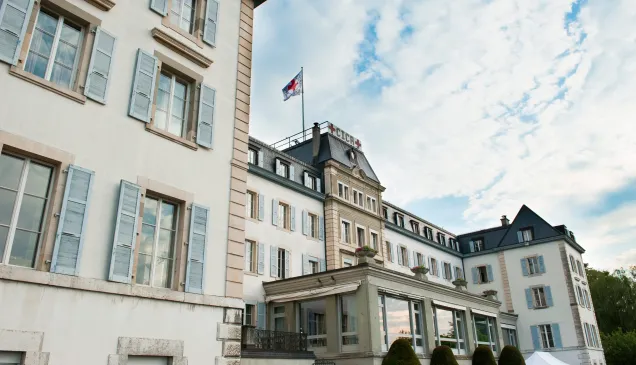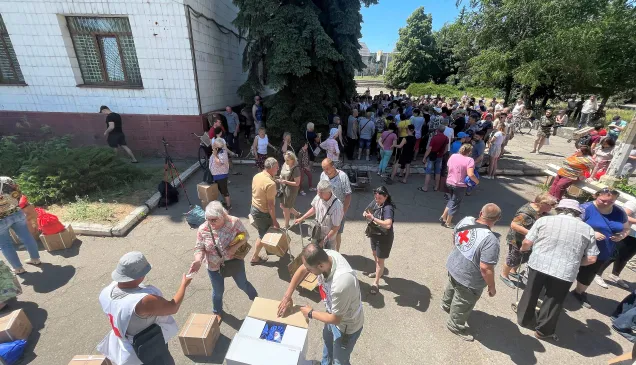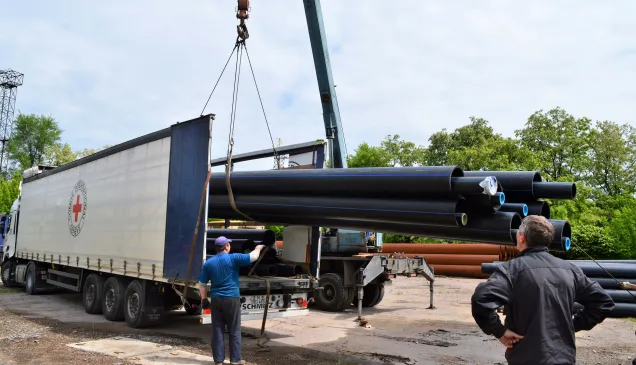Ukraine: Finding creative paths to learning amid armed conflict
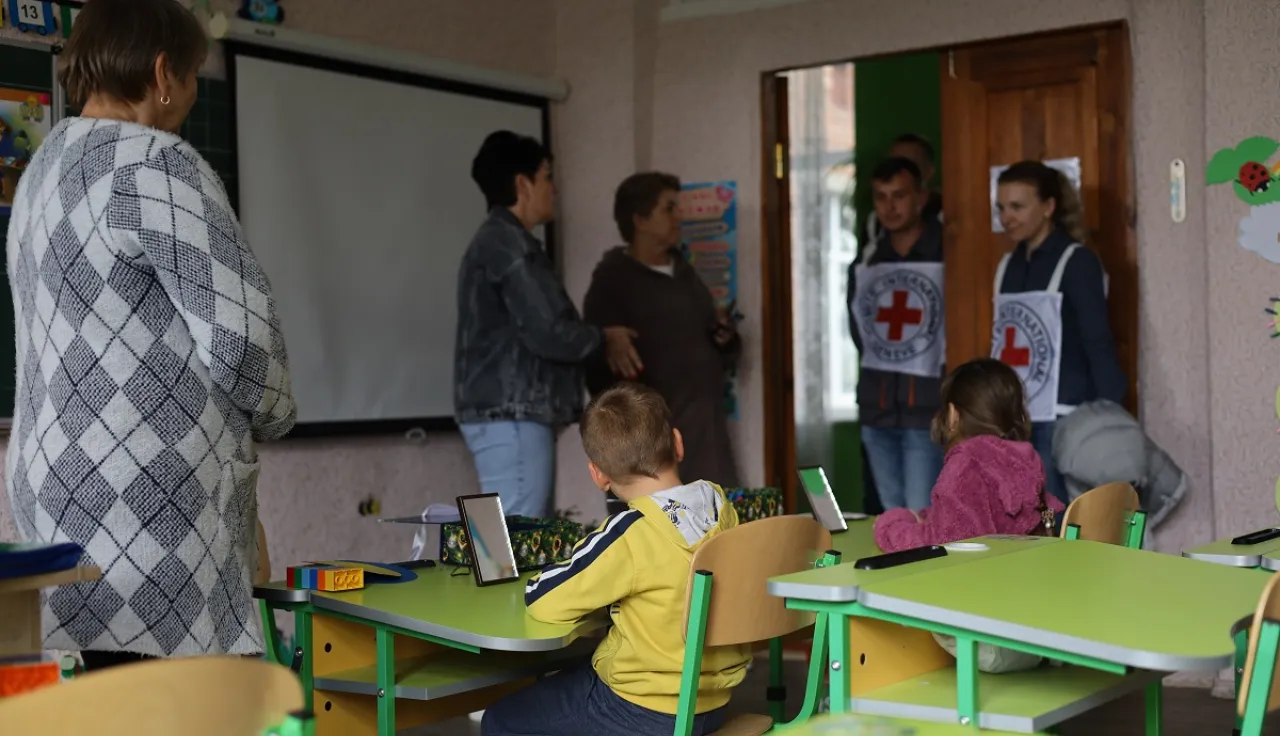
Rows of school desks. Backpacks crammed with textbooks, sweets and toys. Noisy corridors ringing with children’s laughter. Chatting between friends about favourite lessons. Morning greetings from teachers. This was what school used to be like in Ukraine, when children worried about tests, not safety.
First came the COVID-19 pandemic and then the escalation of the Russia–Ukraine armed conflict in 2022, upending Ukrainians' lives and forcing many to flee elsewhere in Ukraine or abroad. Many children have experienced the realities of war first-hand. Now most schools are empty, their roofs and walls damaged and their windows boarded up. Some have even been destroyed by shelling. Inside, time is frozen: the calendars and blackboards still say 23 February. It's unclear when the children will be able to return.
Despite the armed conflict, many towns and villages on the front lines are doing what they can to give their children the education and the childhood they are entitled to. We interviewed teachers and families about how they're making that happen. The ICRC is also doing its part.
The Kruhliak family, Sumy
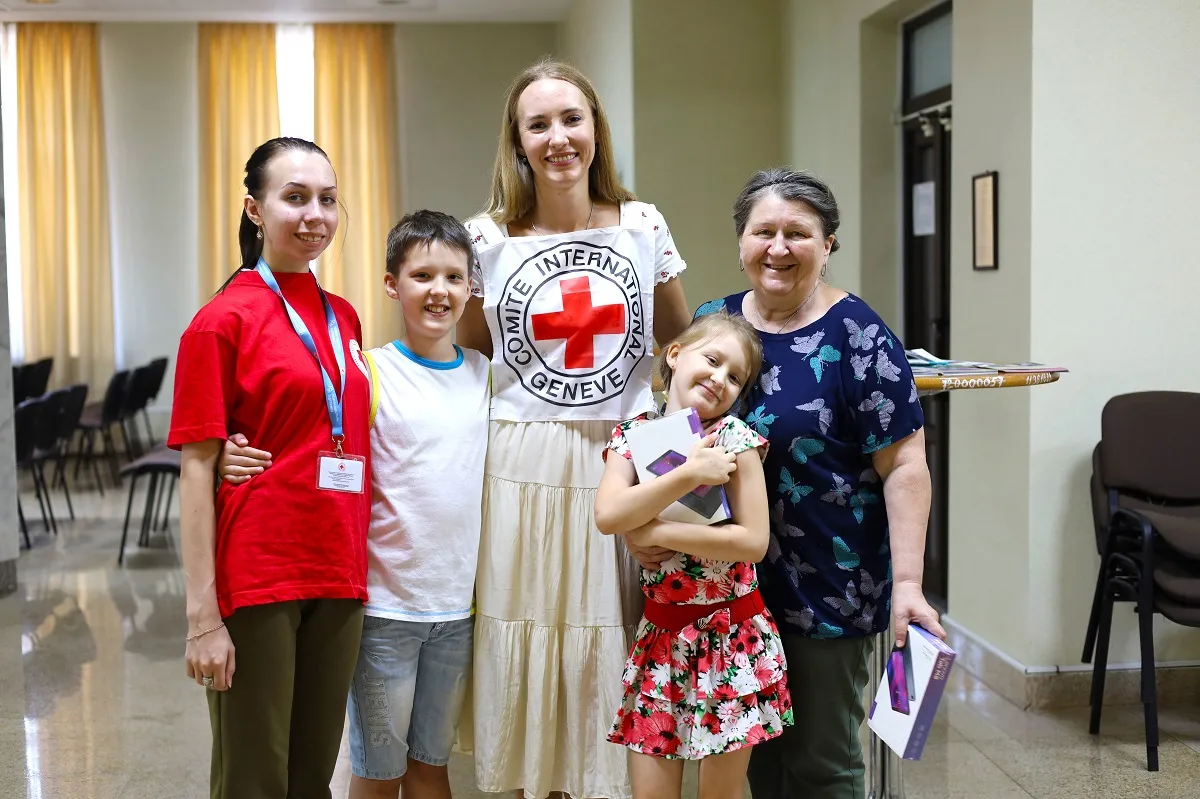
Liubov Petrivna has had custody of her two grandchildren, Pavlo and Kseniia, since they lost their parents in the hostilities. She's doing everything she can to give them a good life, no matter what: caring for them, helping them with their homework, taking them to beading and dance classes, loving them unconditionally. Kseniia and Pavlo intuitively call their grandmother "mama". She half-smiles in response. They are her whole world and what she holds on to.
The family lives in the city of Sumy. Kseniia is in the third grade and Pavlo fifth. They do blended learning – part face-to-face and part remote. Liubov says the children really like going to school and seeing their friends there. The remote part has been hard, though: they have just one old smartphone for the two of them.
"They've tried to do distance learning, but the phone is old and keeps running out of memory. Sometimes they can't even join the lessons or sign into their account to see their homework," says Liubov. The ICRC has given Kseniia and Pavlo each a tablet so they can have constant access to their lessons and study outside of school. "With the new tablets, I'm sure we'll be fine now. They like studying and always help each other. We're very happy."
Like many children their age, Pavlo and Kseniia have a whole host of interests. They don't yet know what they will do when they grow up, but they know for sure that they want to make their grandmother proud.
Nina Pavliv Lyptsi, Kharkiv Region
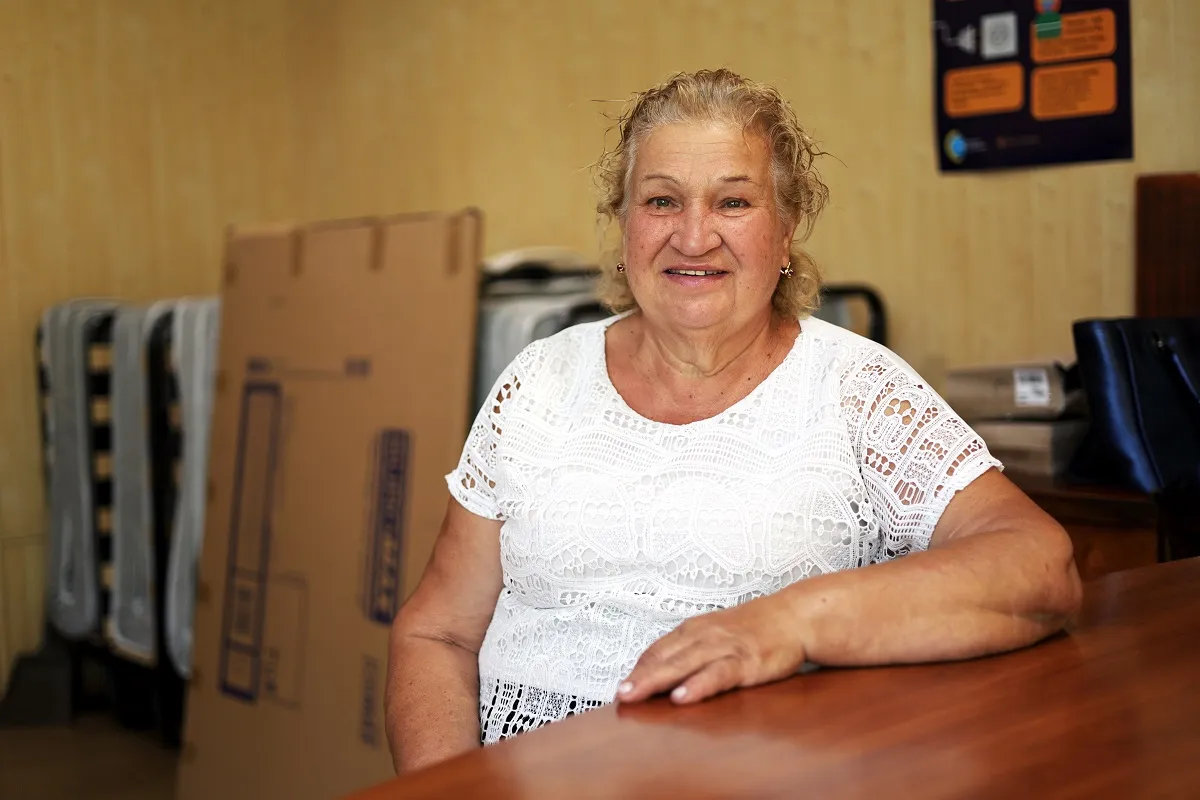
"I taught physics and math for 46 years. Now I'm 69 years old and teaching again, because even in times of war, children must keep on studying. We're responsible for their education."
The village of Lyptsi has been badly affected by the hostilities and was under the control of Russian armed forces for more than six months. Before February 2022, more than five thousand people lived there, but now there may not even be a thousand, including around 50 children. All the playgrounds have been destroyed, and it is dangerous to stray too far from home – explosions can be heard nearby every day. Four schools operate remotely, but not all families have internet access because of damage to the networks. That has left those children – desperate for an education – without an alternative. So Nina Pavlivna, a retired teacher, has begun giving classes, helping children of different ages study and catch up on missed lessons.
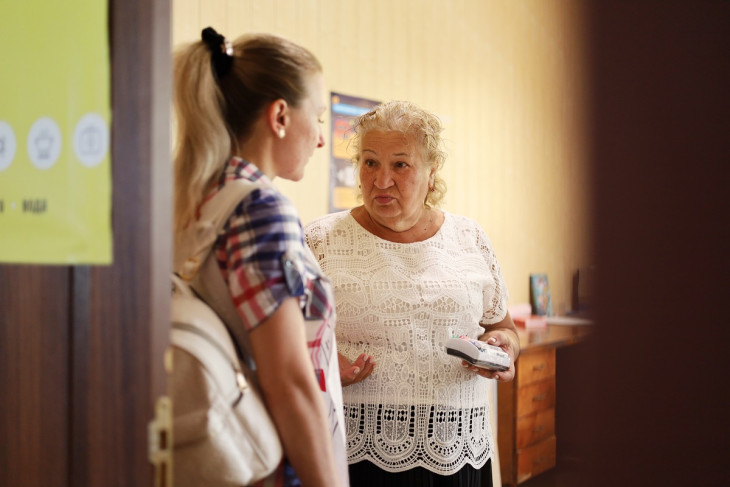
Credit: T. Olinyk/ICRC
"The parents came to me, and I couldn't refuse – children must study. We chose the office of the village council since it has an air raid shelter. At first we met once a week, but with more and more children coming each time, we increased it to twice, once for mathematics and once for physics.
The children ask a lot of questions and try very hard to understand. Sometimes we look for answers together. I said from the outset I wouldn't grade the children, but I'd at least help them not forget the school curriculum. After all, not everyone can study online these days. In our makeshift school, no one takes attendance, but no student has ever missed a class."
Nina's only request to the ICRC was for an ordinary blackboard, where she could write formulas and laws of physics and draw graphs and geometric figures. Her school is small but so important for the students who come here not only to study, but also to be together. It creates a sense of security and normality for a few hours a week.
Natalia Andrushchenko, acting headmistress of the Pravdynska Special School, Ivanivka, Sumy Region
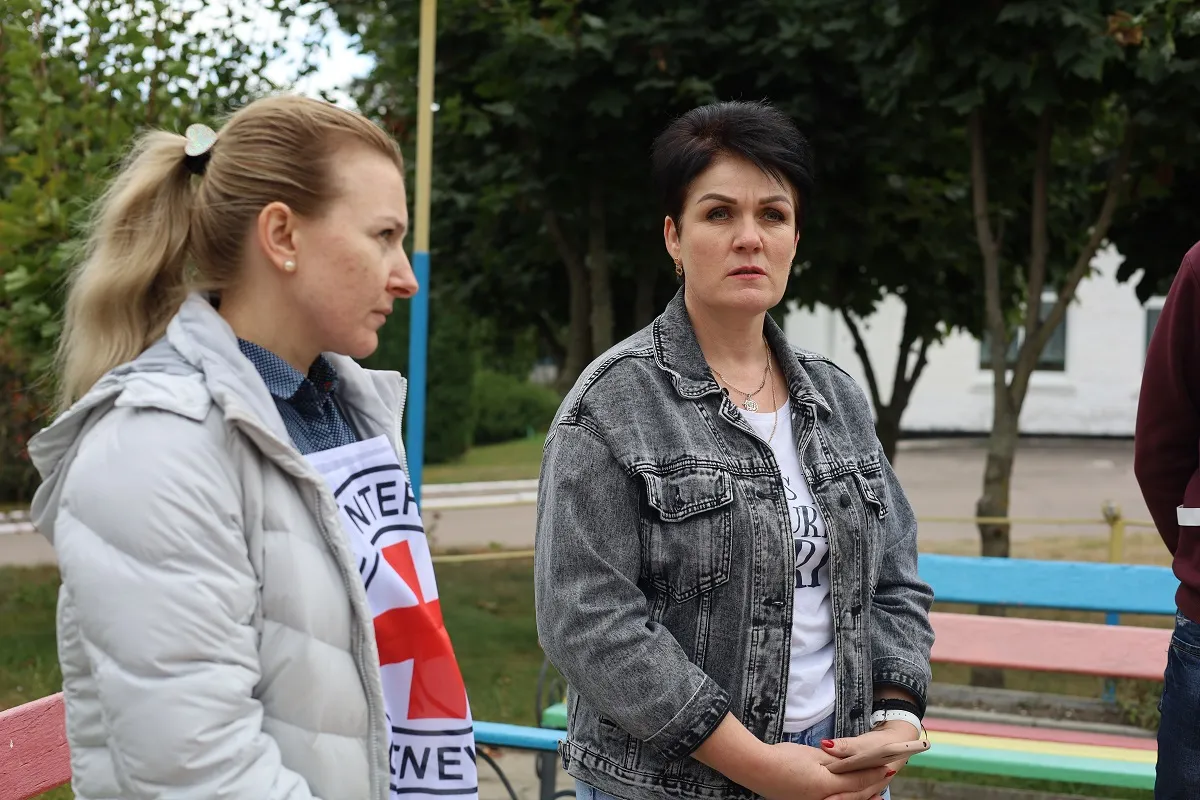
"On the night of 23–24 February 2022, there were 32 students in our school, some from Sumy and some from Krasnopillia. The bridges were blown up immediately. Some parents managed to pick up their children while they still could, but 15 children remained at the school. For 18 long days we teachers lived with them in the basement. Airplanes flew overhead, shelling the nearby town of Okhtyrka. At one point, I thought we'd never get out of that basement."
The Pravdynska Special School is for children with intellectual and developmental disabilities. They need an individualized approach and lots of attention. Last winter, there was hardly any heating for the large, spacious buildings of the school, kindergarten and dormitory. But it's the only special school in the district, so it can't shut down.
"Last year, we sawed wood ourselves; the whole team gathered firewood to heat the shelter. I'm in charge of all these children, and it's a huge responsibility, so we do everything we can to continue the education process and give students everything they need," says Natalia.
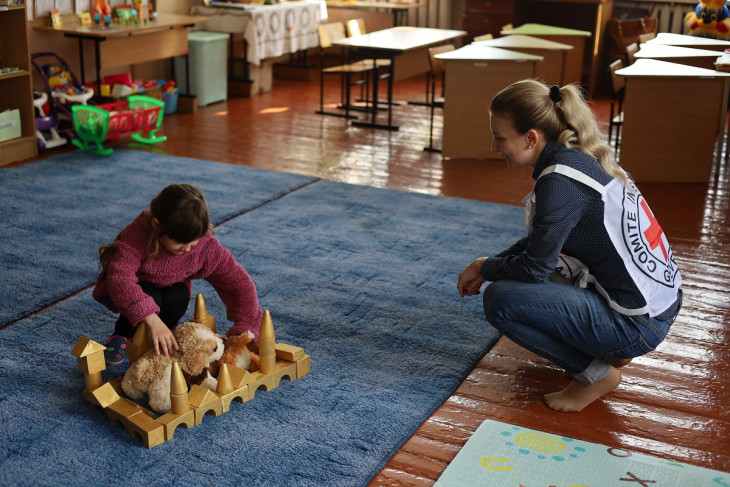
credit: T. Olinyk/ICRC
This year, the buildings will be heated thanks to a generator donated by the ICRC. The school staff have repaired the air raid shelter, decorated the walls with flowers and stocked it with textbooks and toys. In the future it will also have a cinema with a projector donated by the ICRC.
"We'll show the children films and cartoons and play music so they're not afraid and don't hear the explosions outside. Here we fight every day for our children and their future."
Mariia, Lyptsi, Kharkiv Region
From a very early age, Mariia had problems with speech and learning. But she is smiling, cheerful and friendly because she knows that she can overcome all the difficulties together with her family.
Last year, they survived shelling and hostilities when the village was retaken after being under the control of Russian armed forces. They didn't leave their shelter for several months because of the constant danger. Mariia turned 13 this year but hasn't been able to finish the 5th grade because of the conflict. Internet disruptions have continued, making online classes difficult. Her mother, Iryna, hasn't been able to find a job – businesses have simply not survived all the fighting and disruptions – so she does daily practical exercises with her daughter.
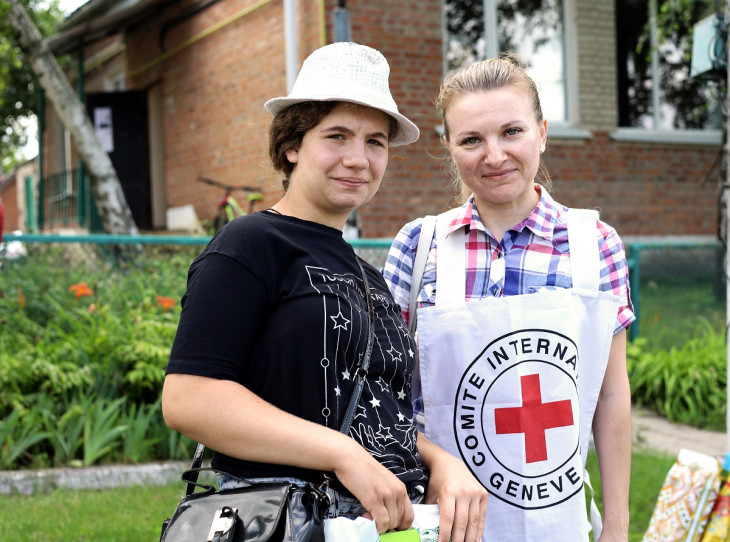
Credit: T. Olinyk/ICRC
"Mariia needs offline classes with a teacher specialized in working with children who have special educational needs like hers. But that's hard to find, especially considering our financial situation, so I try to at least work with her at home on my own," says Iryna.
Mariia is very inquisitive and sincere. She likes drawing and loves solving puzzles. I'd like to make sure she never experiences such fear again and continues to study."
With the support of the ICRC, Mariia has received a specialized educational kit containing items such as a track maze, brushes, paints, pencils, canvases and anti-stress colouring books. This should help her develop her reading and counting skills, and her handwriting and drawing.
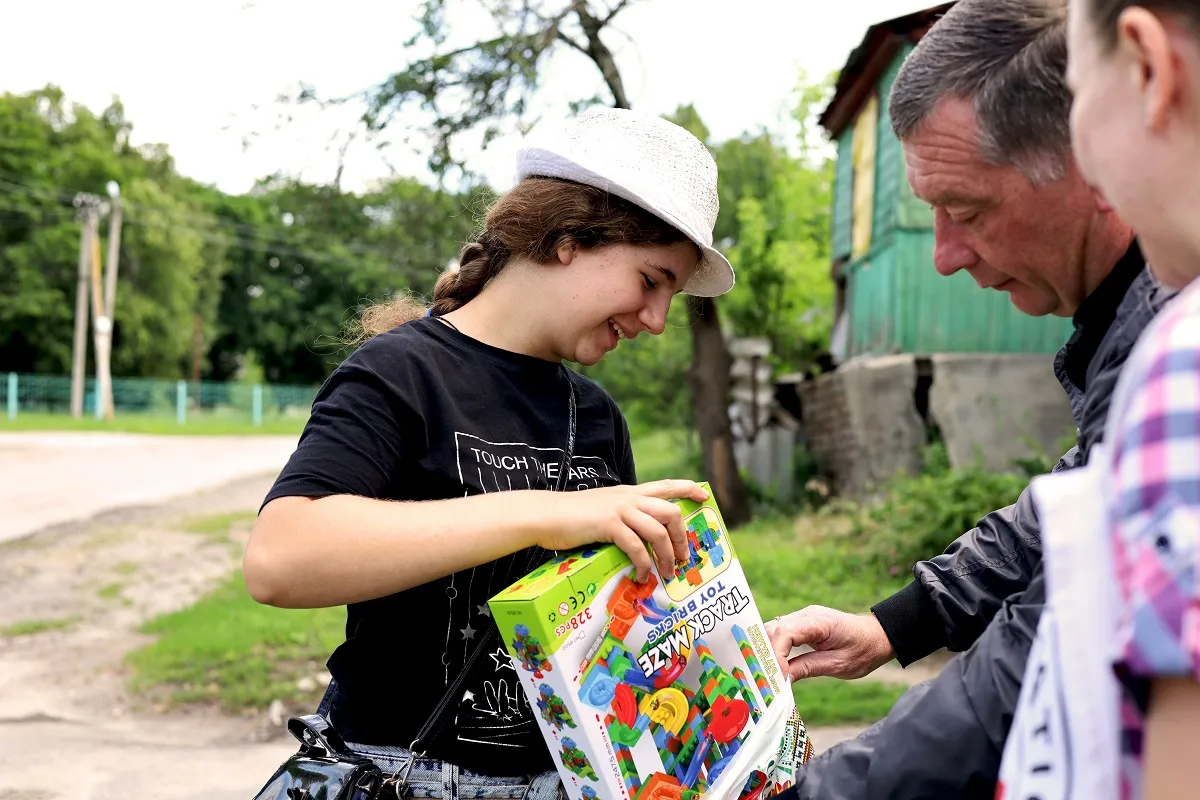
With a sincere smile, Mariia promises that she will work hard. She's convinced that one day she'll return to school and be reunited with her classmates. They'll enjoy noisy breaks and their lessons will no longer be interrupted by air raid sirens.

